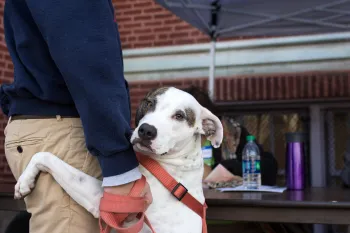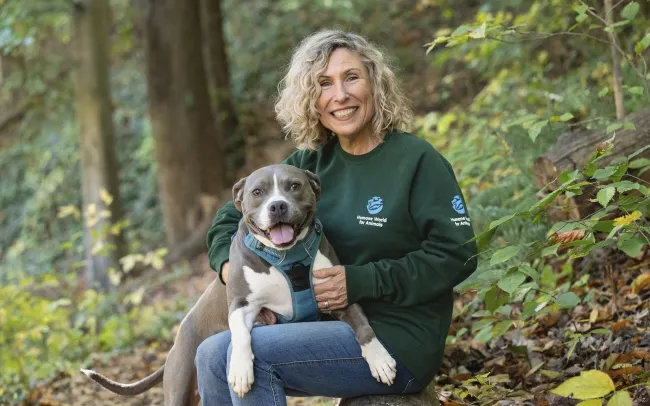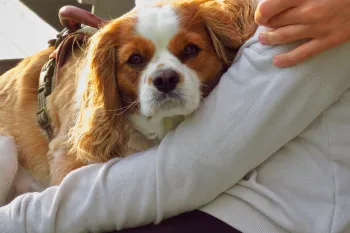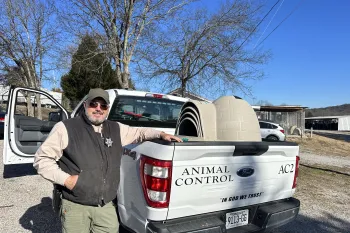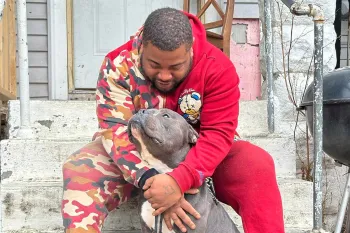Earlier this year, we highlighted a heartbreaking story of a man who had to give up his dog because he couldn’t afford the veterinary treatment she needed. The reason we highlighted his story is because this man is not alone: Many Americans are currently facing compounding socioeconomic challenges—and what affects people affects their pets. Since then, these struggles have only intensified, as the recent crisis related to the government shutdown and SNAP benefits showed.
Approximately 20 million pets in the U.S. experience poverty with their families, while millions more hover just above the poverty line. Across the U.S. families are struggling to afford necessities for their animals, including veterinary care, pet food and supplies.
That is why we have just committed $100,000 in grants to support local pet food support programs. After the government shutdown ended, food assistance payments started up again, but the delays still have lingering negative impact, and these payments cannot be used to help recipients seeking food and supplies for their pets. We’re pleased to be able to allocate additional funding to pet food pantries across the country that work with Humane World for Animals’ Pets for Life program.
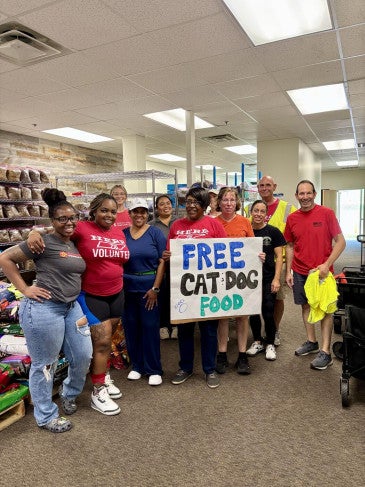
Pet Community Center
These grants are in addition to our year-round distribution of pet food and supplies to underserved areas around the country. So far in 2025, Humane World for Animals has provided over $27 million of pet food to communities across 43 U.S. states and Puerto Rico.
The grant recipients are the Humane Society of Greater Dayton in Ohio, the Massachusetts SPCA in Boston, Companion Animal Medical Project in Oregon, Arizona Pet Project in Phoenix, the Anti-Cruelty Society in Chicago, Kentucky Humane Society, Pet Community Center in Nashville, Houston Humane Society in Texas, Animal Welfare League in Virginia and the Kansas City Pet Project in Missouri.
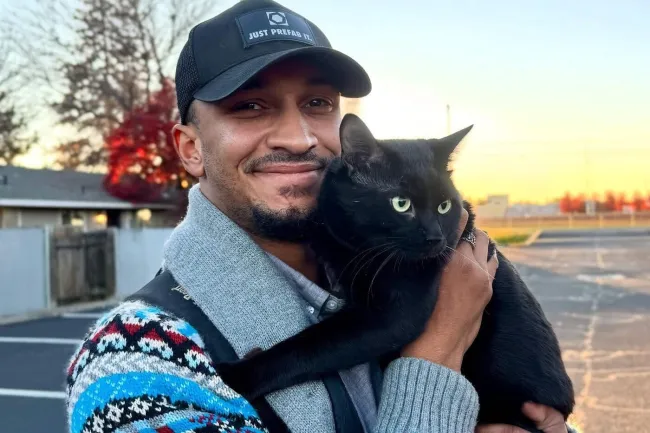
Johannah Johnson/CAMP
We are glad to provide support of this kind. Yet we also know that public policy changes are needed at every level of society in order to help people and their companion animals stay together—and flourish together.
That’s why our state-level agenda for 2026 includes legislative and policy campaigns related to pet-inclusive housing and access-to-veterinary-care in at least a dozen states.
We support changes at the federal level, too. Humane World Action Fund has endorsed the Bring Animals Relief and Kibble (BARK) Act (H.R. 3732/S. 1939), to make it easier for companies and other donors to provide surplus food and supplies to shelters, including pet pantries. The BARK Act thus incentivizes pet retailers and others to donate millions of pounds of usable pet food and supplies to shelters and families with pets.
Systemic change is the foundation of our Pets for Life program which directly addresses the specific challenges people and pets experiencing poverty face. The program takes comprehensive, long-term approach to inequity in and lack of access to pet resources through door-to-door outreach and pet owner support services. Providing veterinary care, supplies, services and information at no cost to pet owners, Pets for Life builds trust and relationships within communities.
During difficult times, the services Pets for Life offers are especially vital. Our vice president of Access to Care for Humane World for Animals, Amanda Arrington, explained that over the last few years the cost of veterinary care, pet food and pet supplies has surpassed overall inflation. “With the rising costs in housing and basic necessities like groceries along with compounding socioeconomic challenges facing so many and now the uncertainty of SNAP benefits, people are deeply struggling,” she said. “We know that people will forgo food and care for themselves to ensure their pets are not hungry. No one should have to be in the impossible situation of choosing between feeding themselves, their family or their pets.”
In hard economic times, animal shelters see a decrease in adoptions as well as rise in cases of people having to make unthinkable decisions about surrendering their pets. “The best possible outcome is making it possible to keep pets with their families in the first place,” Lindsay Hamrick, our director of shelter outreach and engagement, added, “by providing resources to ensure veterinary care and food is accessible even during hard times.”
We are doing even more in this area of concern to help match the need we are seeing. We launched our More Than a Pet campaign to bring more awareness to the crisis and to garner corporate engagement to support our programs. A Harris poll showed that people care about both pets and pet owners: Three-quarters of Americans (75%) believe that a family’s socioeconomic status should not be a barrier to pet adoption and that animal shelters—more than ever—need more people to adopt pets. Most Americans agree that all pet owners deserve to keep their pets as long as they care for them and love them. And a majority agrees that no one should have to give up their pet if they fall into financial difficulties.
We couldn’t agree more, and we are determined to do all we can to create the support people and their pets deserve.
Kitty Block is president and CEO of Humane World for Animals. Follow Kitty Block on X. Sara Amundson is president of Humane World Action Fund.
